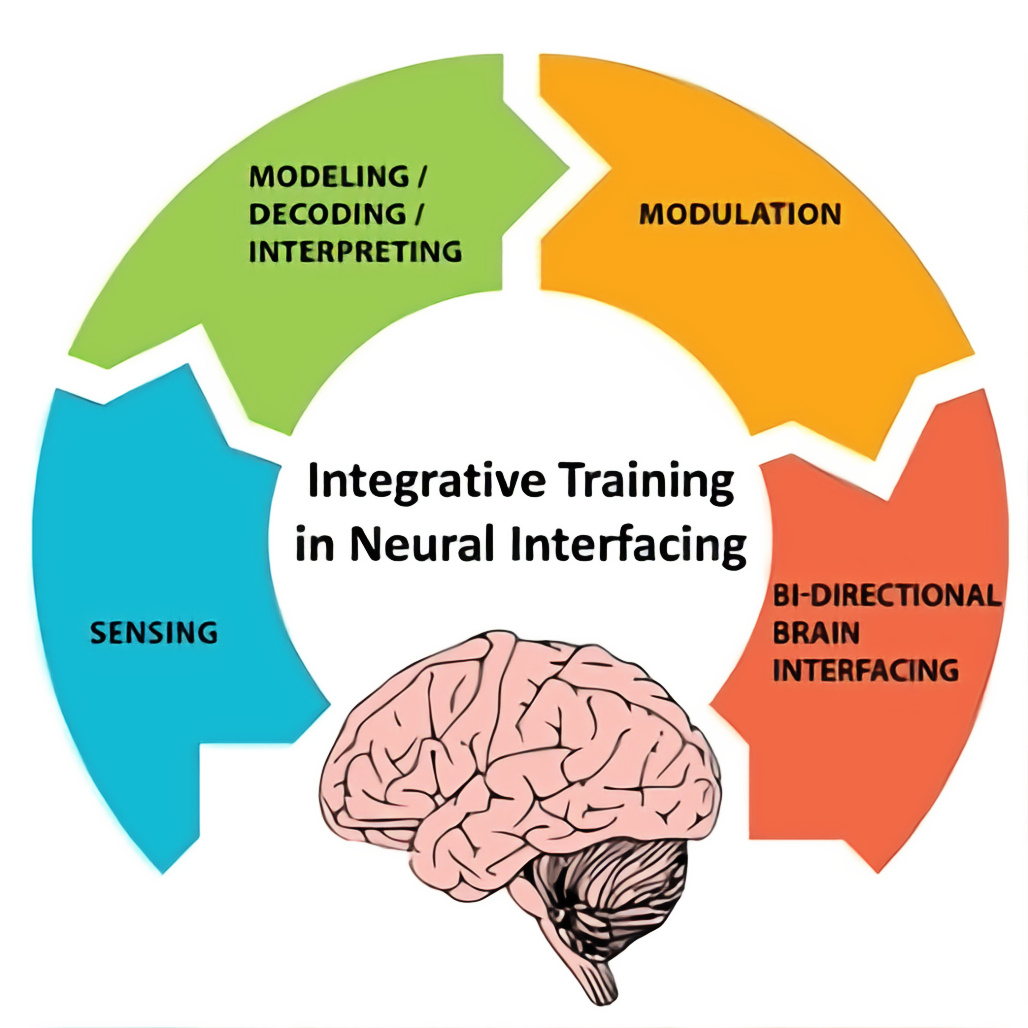The Neural Interfacing Training Program
The NIH funded T32 training program (T32) is motivated by the notion that future breakthroughs in this rapidly-growing area of research will be made by engineers who innovate engineering technologies with a deep understanding of the fundamental issues and principles of brain science, and who have had hands-on experience in the application of engineering technology in a real-world neurotechnology setting, aiming at ultimate clinical applications.
The T32 will train doctoral students from engineering and computational neuroscience programs at Carnegie Mellon University (CMU) to develop the skills and experience needed to revolutionize the neurotechnologies necessary to enhance our understanding of the brain, explore normal and altered brain dynamics and networks underlying learning, motor control, perception and cognition, elucidate the underlying mechanisms of brain circuits and networks, and translate these neurotechnologies to clinical medicine. This integrative training program is expected to optimize the rate and efficiency of engineering innovation and its translation to clinical management of various neurological disorders.
Aims of the Training program
- Develop the technological and theoretical foundations to understand brain function and dysfunction through brain interfacing, i.e., through sensing, modeling, decoding, interpreting, and modulating brain dynamics at circuit, network, and whole brain levels.
- Advance our understanding of brain function in the domains of learning, motor control, perception and cognition, and determine and quantify the adaptive changes of the central nervous system that occur in a novel environment, when interacting with a machine, or when in an altered, diseased state.
- Innovate brain sensing, modeling, decoding, and modulation technologies, based both on quantifiable behavioral or perceptual outcomes and on the adaptive changes occurring in the brain during a neural intervention.
T32 fellows will develop transformative sensing, decoding, stimulation and computational techniques, and investigate how to leverage neuronal dynamics, neuronal plasticity, learning, and attention mechanisms to innovate and transform future brain technologies. Fellows will obtain integrative training on multi-scale neurotechnologies, all the way from neural circuits to networks to behavior, to address the challenges of understanding the human brain and managing neurological disorders from a systems perspective. Fellows will be trained in the fundamentals of neurotechnologies, foundations of computational and machine learning techniques, and neuroscience investigations in experimental animal models and in healthy and disordered human populations.
The broader impacts of this program are through training a new generation of leaders who can competently and confidently tackle the grand challenges in innovating neurotechnologies, and advancing basic and translational brain science with engineering principles and approaches. Our program will specifically train doctoral students to meet the interdisciplinary, collaborative, and global challenges of the future. Neural interfacing is an emerging field that exemplifies the need for future researchers to be adaptable to continuous change. It is anticipated that trainees of the T32 will become future leaders who are the catalysts for neurotechnology innovations that enhance, measure and modulate, and ultimately heal our brain through neural interfaces.
